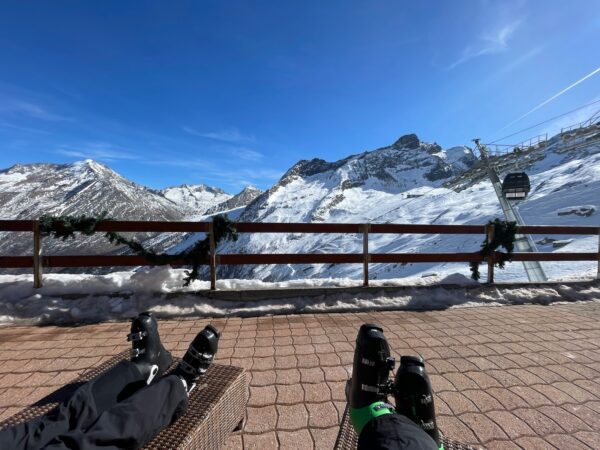On Sunday I had a video call with an old family friend, Marjorie, who has just celebrated her 103rd birthday, and is doing well. To put that in context, she was a teenager when the king acceded to the throne. No, not the current king. His grandfather. You know, the one whose daughter reigned for three score years and ten after him.
So I had longevity in mind when I saw Charles Arthur’s link to a rather nice study by S. J. Newman from the Australian National University, looking at the data about other people who have lived beyond 100 years. The records of supercentenarians tend to cluster in particular geographic areas, and many reasons have been suggested for this.
As the paper says,
The observation of individuals attaining remarkable ages, and their concentration into geographic sub-regions or ‘blue zones’, has generated considerable scientific interest. Proposed drivers of remarkable longevity include high vegetable intake, strong social connections, and genetic markers. Here, we reveal new predictors of remarkable longevity and ‘supercentenarian’ status.
It’s a nice read, and a good lesson in why those involved in data analysis sometimes need to dig a bit deeper.
The quick summary is that areas reporting large numbers of supercentenarians not only have high degrees of poverty, social interaction, and high vegetable intake. They are also areas where reliable record-keeping was only recently introduced, or where there may be other reasons for assuming that reports of very old people are not entirely accurate.
Some of this can be deduced by looking at the data directly, for example the fact that “supercentenarian birthdates are concentrated on the first of the month and days divisible by five” or that some areas with numerous residents in their 100s seem to have surprisingly few residents in their 90s.
Sometimes there are other reasons for doubting the reliablility of the data:
The large-scale US bombing and invasion of Okinawa involved the destruction of entire cities and towns, obliterating around 90% of the Koseki birth and death records with almost universal losses outside of Miyako and the Yaeyama archipelago. Post-war Okinawans subsequently requested replacement documents, using dates recalled from memory in different calendars, from a US-led military government that largely spoke no Japanese.
Sometimes, past researchers have had to use their own judgement when assessing individual cases:
Individual case studies often highlight the role of personal judgement, and the potential for both conscious and unconscious bias, during age validation. For example, Jiroemon Kimura, the world’s oldest man, is widely considered to be a valid supercentenarian case. However, Kimura has at least three wedding dates to the same wife, has three dates of graduation from the same school, was conscripted to the same military three times in four years despite the mandatory conscription period being three years long, and has at least two birthdays.
Then there are the financial issues to consider:
In 1997 Italy discovered it was paying 30,000 pensions to dead people
and
A subsequent 2012 investigation by the Greek labor ministry was triggered by the “unusually high number of 9,000 Greek centenarians drawing old-age benefits”, a notable figure given the 2011 Greek census found only 2,488 living centenarians.
Yes, the sad conclusion is that:
Like the ‘blue zone’ islands of Sardinia and Ikaria, Okinawa represents deprived regions of rich, high-welfare states. These regions may have higher social connections, and arguably may have had higher vegetable intakes in the past, but they also rank amongst the least educated, poorest, highest-crime and least healthy regions of their respective countries.
Lastly, you know those reports that the longest-lived are often people whose lives are characterised by smoking, drinking and unhealthy lifestyles? The paper has some wry comments about that too:
It is unclear why clinically excessive drinkers or daily smokers should survive at equal or higher rates, and increase in population frequency at extreme ages, unless these lifestyle factors are positively correlated with committing fraud or having an incorrect age.
And, referring again to the decisions of the researchers who build the databases:
A reliance on this type of opinion, where qualitative judgements are employed to shape public perceptions of authenticity, seems to be widely considered satisfactory. This seems particularly the case when explaining the otherwise anomalous health habits of supercentenarians. For example, Maier et al. issued a contradictory statement that Jeanne Calment smoked both one and two cigarettes a day for an entire century, followed by the justification that this counter-indication of health could be explained because she “possibly did not inhale at all”.
It was likewise observed that, from age 20 to age 117, the then-oldest man in the world, Christian Mortensen, smoked “mainly a pipe and later on cigars, but almost never cigarettes… he had also chewed tobacco…but never inhaled”.
Why two people would voluntarily choose to smoke for an accumulated 190 years, yet never inhale, was never explained.
 And so for some of us, the trick became learning how to turn off and hide as many of these features as possible, partly to avoid confusing and overwhelming users, and partly just to get on with the actual business of creating content, for which we were supposed to be using the machines in the first place. One feature which became the iconic symbol of unwanted bloatware was ‘Clippy’ (officially the
And so for some of us, the trick became learning how to turn off and hide as many of these features as possible, partly to avoid confusing and overwhelming users, and partly just to get on with the actual business of creating content, for which we were supposed to be using the machines in the first place. One feature which became the iconic symbol of unwanted bloatware was ‘Clippy’ (officially the 


Recent Comments